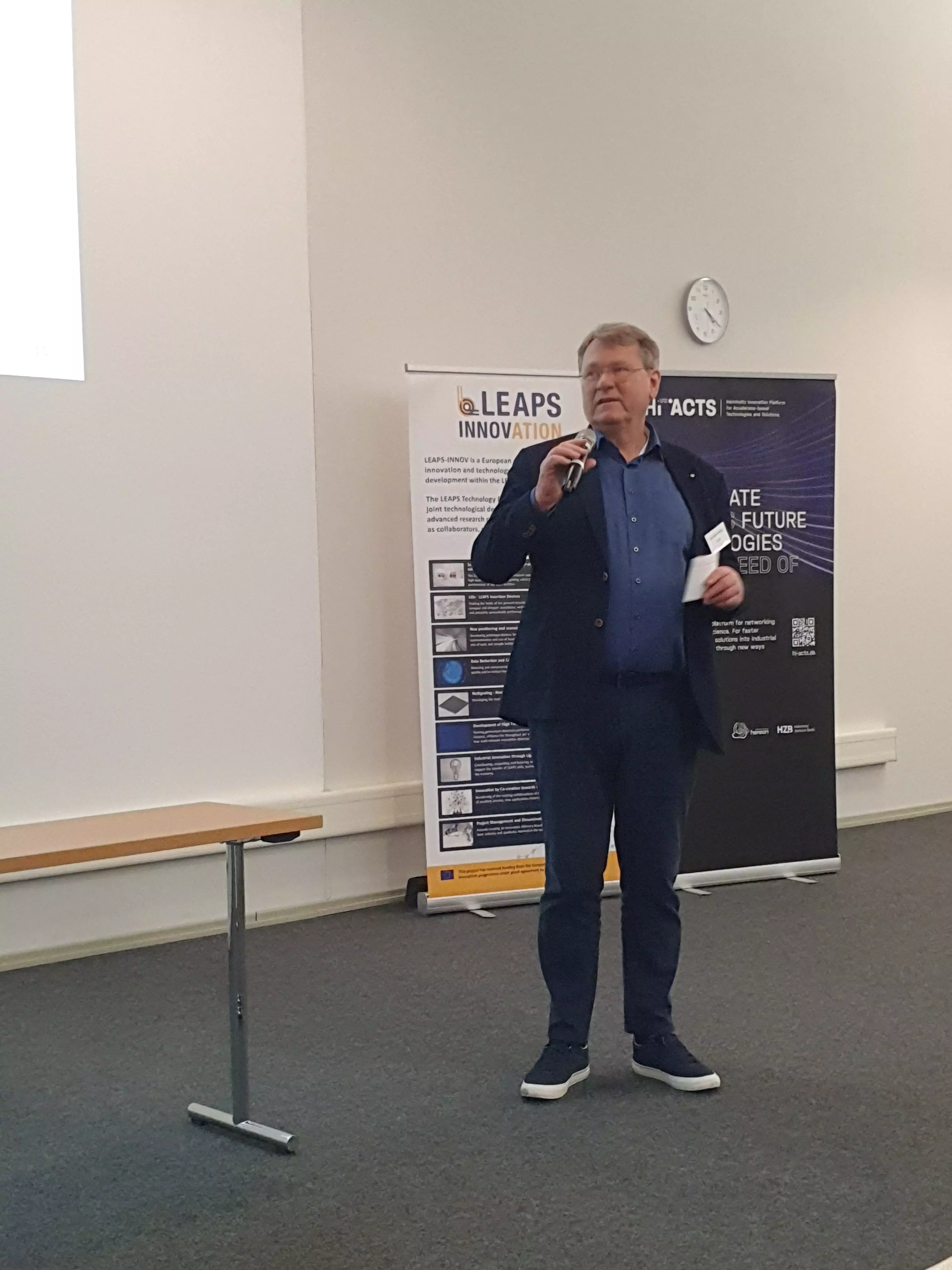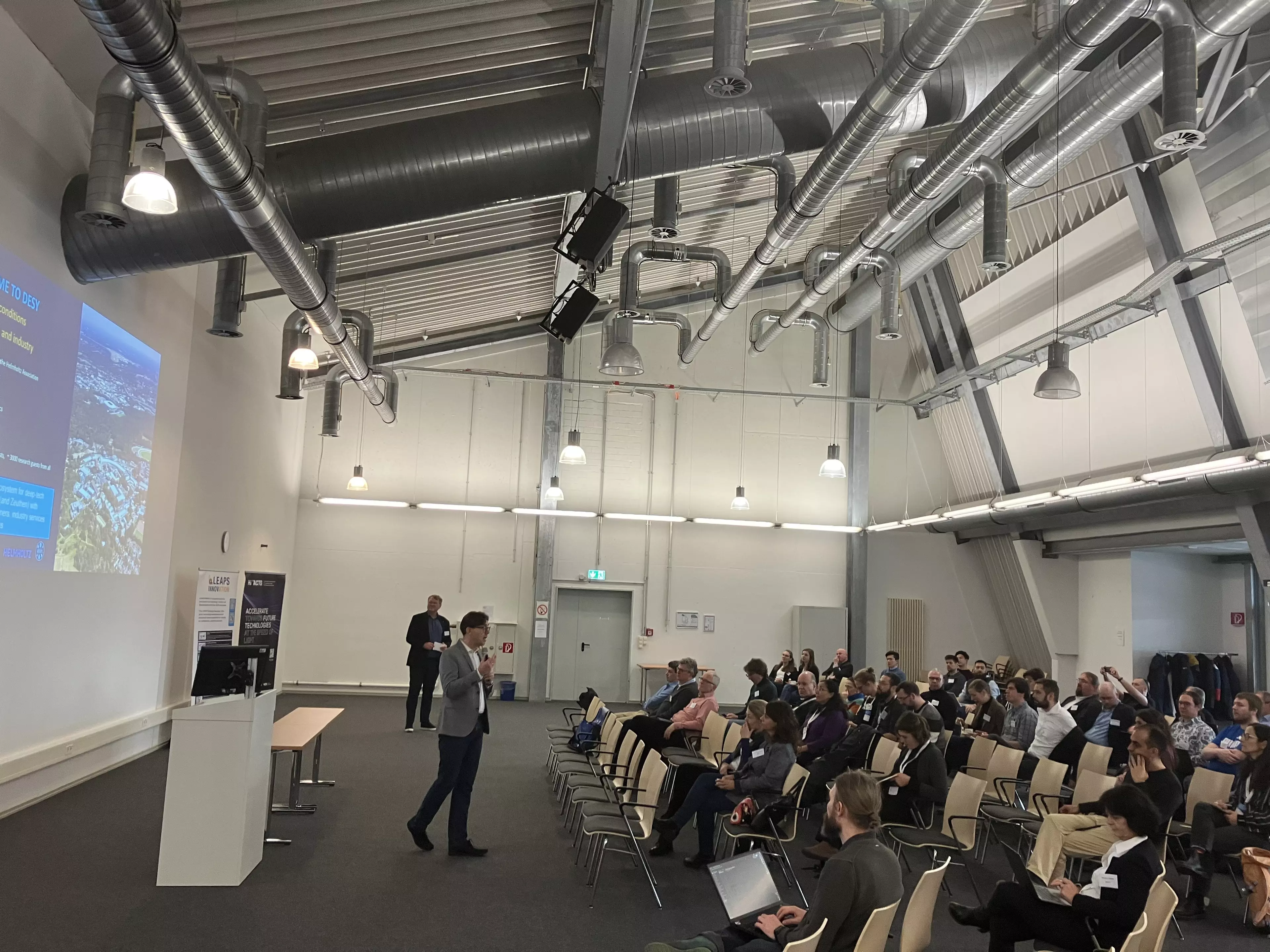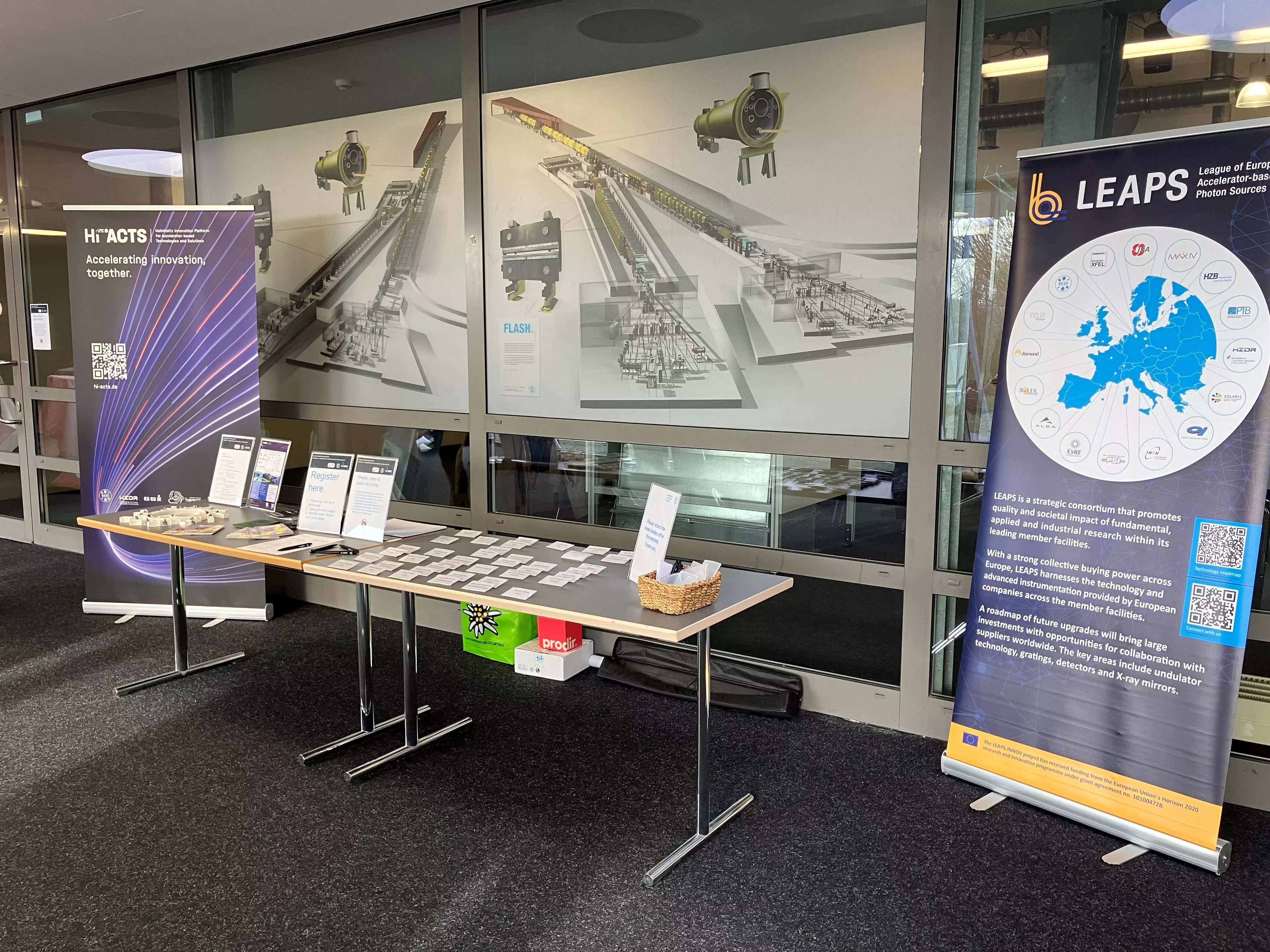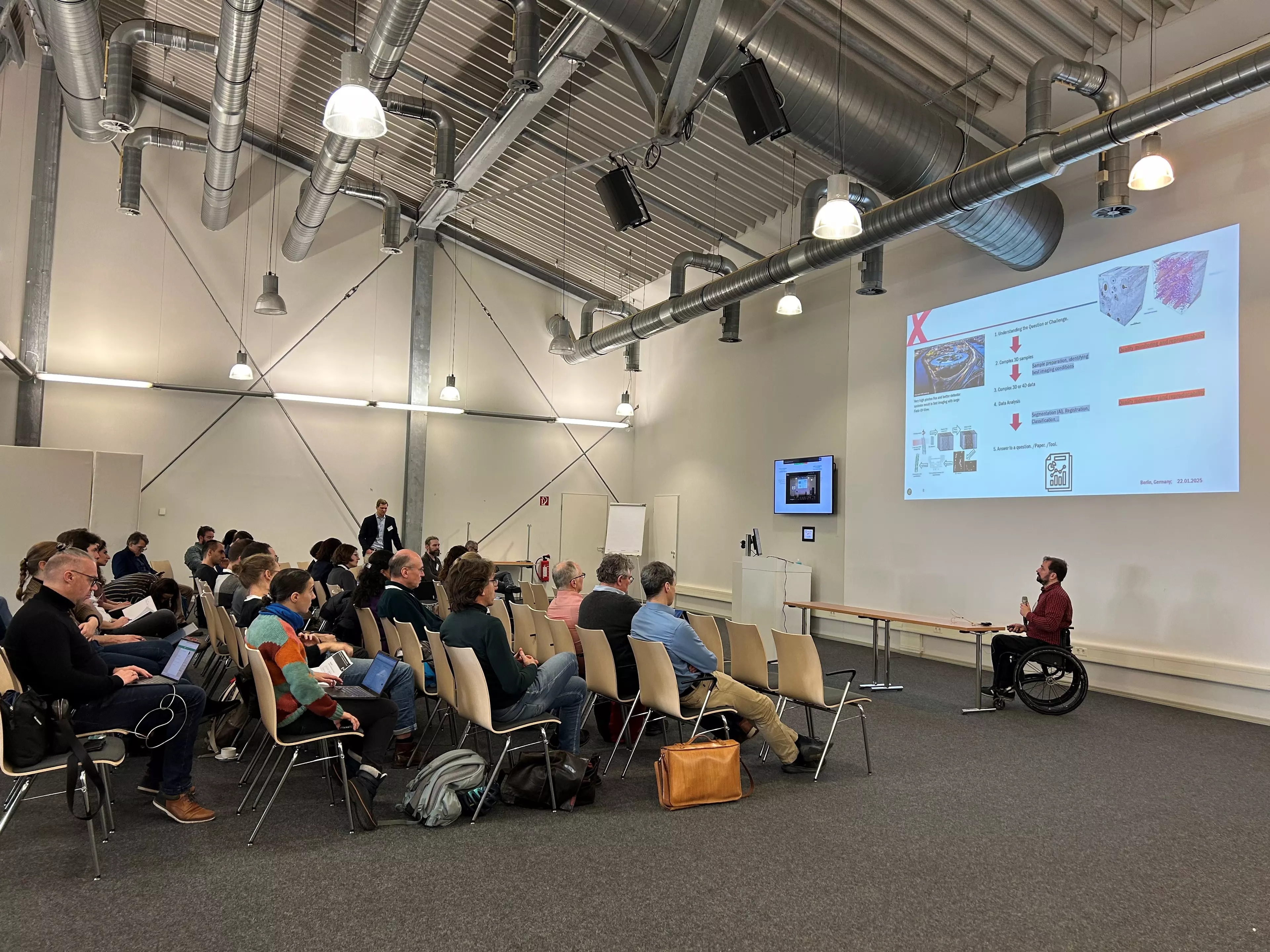News|Industry Satellite Meeting 2025: Advancing Semiconductor Innovation
Industry Satellite Meeting 2025: Advancing Semiconductor Innovation
Hamburg / Germany01/22/2025

The Industry Satellite Meeting 2025, jointly organized by Hi-Acts and LEAPS-INNOV (funded by the European Union’s Horizon 2020 research and innovation programme under grant agreement no. 101004728), focused on addressing future challenges in power semiconductor manufacturing and enhancing research infrastructure capabilities.
Held during the Photon Science User Meeting at DESY Campus, the workshop attracted over 60 participants from industry, universities, research and technology organizations (RTOs), and research infrastructures (RIs).
Expert Insights and Collaborative Discussions
The event was structured into three key sessions, preceded by opening remarks from Dr. Arik Willner (CTO, DESY) and Dr. Ennio Capria (ESRF). They introduced their respective synchrotron facilities, highlighting ongoing efforts in innovation and technology transfer, with a special emphasis on semiconductor research.
Session 1: Automation, Standardization & Data
Experts from Danish Technology Institute, Xploraytion GmbH, Finden Ltd., and KAI/Infineon shared insights into FAIR Data (Findable, Accessible, Interoperable, Reusable), automation, and standardization. Discussions emphasized how structured data management and automated processes enhance the efficiency and reliability of synchrotron-based semiconductor analysis.
Session 2: Special Challenges for Power Electronics
Speakers from KAI/Infineon, Fraunhofer IKTS, and Nexperia presented real-world applications of synchrotron radiation in semiconductor R&D and process development. Topics included:
- Material inspection and failure analysis
- Process and technology improvement
- Aging and Testing experiments
These examples underscored the value of synchrotron technology in enhancing semiconductor performance and reliability.
Session 3: Open Discussion – The Future of Research Infrastructure Support for the Semiconductor Industry
Moderated by Dr. Uwe Sassenberg, this session brought together key insights from previous presentations, fostering an engaging discussion on strengthening collaboration between industry and research infrastructures.
Access to Research Infrastructures
- Fast and easy access to measurements is critical for rapid industry innovation.
- Rolling proposals and collaborative models have already improved industry access, with further enhancements under discussion.
- Increased industrial demand could drive beamline specialization and the availability of dedicated staff.
- Service providers play a crucial role in aligning industry needs and pre-purchasing beam time for streamlined access.
Data Challenges
- Industrial datasets are often heterogeneous, non-standardized, and vary in format, posing challenges for interoperability.
- Confidentiality constraints restrict the sharing of measurement data, particularly in proprietary sample production processes.
- Shared metadata is crucial for reproducibility, quality control, and data standardization.
Automation & Standards
- Automation requires high measurement demand to justify investment.
- Industry prioritizes measurement comparability for production monitoring rather than full automation.
- Expert interpretation by beamline scientists remains a key industry preference over purely standardized procedures.
Strengthening Collaboration for the Future
The Industry Satellite Meeting 2025 reinforced the growing role of synchrotron technology in addressing semiconductor challenges and reaffirmed the shared interest among industry, research infrastructures, and service providers in advancing collaboration.
Moving forward, suggestions for the future include:
- Strengthening academic-industry partnerships
- Expanding collaborative initiatives to accelerate semiconductor innovation
- Industry-dedicated beamlines to allow faster access and enable a higher degree of standardization and automatization
Beyond formal sessions, the workshop fostered valuable networking opportunities, with participants engaging in discussions over refreshments in the foyer. These informal exchanges further underscored the importance of cross-sector collaboration in driving progress within the semiconductor industry.





